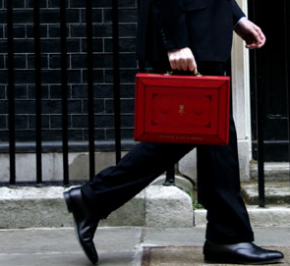
Budget 2014 – Who Benefits?
The headline voting intention results of our Mail on Sunday poll this week are worth exploring in a little more depth. For a number of reasons the effects of the budget on voting intentions are more complex than they might first appear.
Firstly, despite the key measures in the budget being about pensions reform, it is not predominantly among pensioners that the Conservatives have made gains. Our post budget poll showed the Conservatives on 35% among over 55s, exactly the same percentage that they were on in our January poll for Sky News. When the Chancellor’s policies are examined closely, this is easily explained – existing pensioners do not really benefit from the new pensions liberalisation, as they have already purchased annuities which they are locked into. It is only those who become eligible to cash in their pensions from this Summer that will be able to enjoy the new financial advantages and are therefore the main beneficiaries. Our polling seems to bear this out – among those aged 35-54 the Conservatives are on 36% in our latest poll, up 10 whole points from where they were in January. Labour meanwhile has dropped 8 points in this middle age group.
It is not all bad news for Labour however; they have actually picked up 10 points of their own among those over 55 (leading to a net 1 point rise overall) , mainly seemingly elderly UKIP voters on the left, as well as those previously not voting. The explanation here would seem to be that the budget has only helped certain very selective groups, namely those approaching retirement and with enough savings to actually benefit. Those already retired and those without significant savings are likely to feel hard done by in comparison. Overall, 22% of those who had seen/read about the budget actually said they thought it would make them “worse off”, compared with 21% who said “better off”.
This division played clearly along class and party lines – those in the AB socio-economic group said they would be better off by 34% to 14%, whilst those in the DE group at the bottom of the spectrum (who are much less likely to have savings) said they would be worse off by 29% to 14%. As an example of the selective effect of specific policies, the ISA liberalisation and abolition of the 10p tax of savings led 26% of respondents to say it will encourage them to save more money, but a far larger 42% of voters said that whilst the policy “would encourage me to save more of my money… I can’t currently afford to set aside any more money for savings”.
In many ways then, this was a budget targeted narrowly (and effectively) at the Conservative base; the “savers” talked about by Osborne being predominantly middle-aged affluent voters. Tellingly, when asked if it would make them better or worse off, Conservative 2010 voters, the “Tory base” they are aiming to target, said “better off” by 35% to only 6% saying “worse off”, the starkest of any demographic divide.
In terms of the debate over the principle behind the pensions reform, the public seem similarly quite divided. There was a fair degree of agreement with the idea that it was a good thing to give pensioners control of their savings (50%), though 31% of the public still thought it was a bad idea, agreeing with Ed Balls that people might run out of money before they die. Those sharing this concern will likely be further troubled by the finding that only 7% of those under the current retirement age said that buying an annuity would be their top spending priority with their pension money on retirement – a potentially major threat to the stability of the annuities market if borne out in the years to come. This is less than the 8% who said they would buy luxury items like a car or holiday, or the 14% who said they would give the money to relatives.
16% said they would make a “personal investment” of another sort, though this raises questions as to whether pensioners might be conned into making unwise investments with their newly flexible wealth. 59% of the public thought that Osborne’s reforms to pensions would “lead to an increase in unscrupulous relatives, salespeople and fraudsters targeting the elderly for money”, compared with only 19% who thought there would be no such increase.
Overall, the changes announced in the budget represent a very major shake up of the pensions system in the UK, one which will inevitably have both winners and losers. At present, it appears that the main winner is Osborne himself, enjoying his most favourable media coverage in several years, but this particular contest is far from over. As these changes are examined closely in the weeks and months ahead, these questions will no doubt continue to be debated and there still remains potential for Labour to capitalise on aspects of a budget that primarily benefits the affluent Conservative base.
To see the full data tables, please click here.
Director of Research, Survation
< Back



